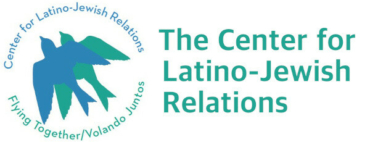02-07-2025 Torah Commentary

שאלו שלום ירושלים
Pray for the peace of Jerusalem
Due to a heavy travel schedule, we shall examine both “Parashat Bo” (Exodus 10:1-13:16) and the parashah for the upcoming week Parashat b’Shlach (Exodus 13:17- 17:16). Although these two long parashiyot (plural of parashah) may at first seem disconnected, if we carefully examine their themes, we see that each weekly section in many ways is philosophically almost the other’s mirror image.
Parashat Bo deals with the theme of death. The section speaks of the last three plagues that G-d visited on Egypt, culminating in the death of Egypt’s first-born sons. The final plague forces us to remember that Pharaoh’s genocidal intentions by ordering the drowning of the Israelite male children.
Not only do we sense a foreshadowing of death, in Parashat Bo but throughout the parashah we are aware of the heavy hand of the past, of living in a present marked by fear and of wondering about the future. In many ways, Parashat Bo expresses the feelings that so many of us have had after Hamas’ attack of October 7th.
In Parashat b’Shlach, on the other hand, there is a new sense of life and the desire to take risks. This parashah is the first section in the Bible where Israel is now a free nation. Parashat b’Shlach makes it clear that the path to freedom would not be easy. It describes Israel’s first “baby steps” away from the so called “Egyptian paradise of slavery” and toward individual and national responsibility.
In the second parashah as the people of Israel travel through the wilderness it becomes clear that the people of Israel can no longer blame others for their difficulties. What happens now is their responsibility. In Egypt and as slaves we might call them “children. ” Now in the Wilderness of Sinai,” we might call them teenagers. With G-d’s help and guidance, the Israelites, just like teenagers, would begin to learn to forge their own destiny. Sinai would be the bridge taking them from being children/slaves to teenager and upon entering the Land of Israel ultimately to full adults.
Both Bible sections deal with bread, symbolizing the substance of life. In the first section, the bread is “matzah.” baked in haste and without leaven. It is called the bread of affliction, the bread of slavery. Is the people’s lack of preparation the Bible’s way of teaching us slaves are forced to live in an eternal present; deprived of both their past and future.
In the second section, Parashat b’Shlach, the bread was called “manna.” This was the bread of freedom, the miracle bread, the bread of many different tastes. Manna is a gift of G-d, and unlike the matzah of slavery where there is no distinction between human beings, the manna of freedom offered each person a uniqueness of taste.
Perhaps these two types of breads symbolize the difference between slavery and freedom, between being an infant and becoming an adult. Politically the slave is forced to be an eternal child. Being afraid to plan for the future the slave lives shackled by the past and in an ever-present state of fear. On the other hand, the free person, the adult, sees the present as gift. The free person, the adult, views time as both a challenge and as a gift. For the free person, history is a lesson that allows him/her to take part in shaping the future.
Together these two Biblical sections pose a challenge to each of us. We too must decide if we wish to be a slaves in an “Egypt of own making.” Do we wish to be shackled by the fear and live on the side of eternal childhood? Or do we desire to confront reality with hope and courage daring to challenge our trepidations and becoming an adult who take responsibility? Which of these options do you prefer? Do you desire to live as a slave stuck in the past or as a free person headed toward freedom and personal responsibility?
__________________________
Please help the Center for Latino-Jewish Relations reach our goal of $900,000!
Please contribute whatever you can to help us reach our general fund so that we can take delegates to Israel or if you prefer to our special fund to help Kibbutz Nativ Ha’Asarah rebuild after the horrific terrorist attacks of October 7th
You can also contribute to our special fund to help us educate university presidents on antisemitism.
Please send your donation to:
Center for Latino Jewish Relations
150 West Parker Rd.
3rd Floor
Houston Texas 77076. USA
YouTubes for the week
Three Versions of L’chah Dodi
The Maccabeats
A From France
M A Sephardic Version
Please pray for Israel’s soldiers and the safe return of all of the remaining hostages.
